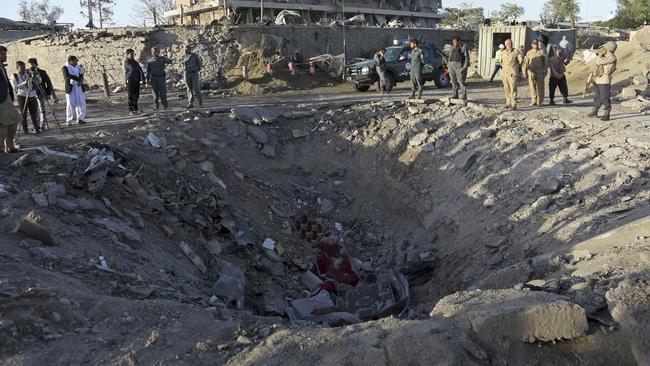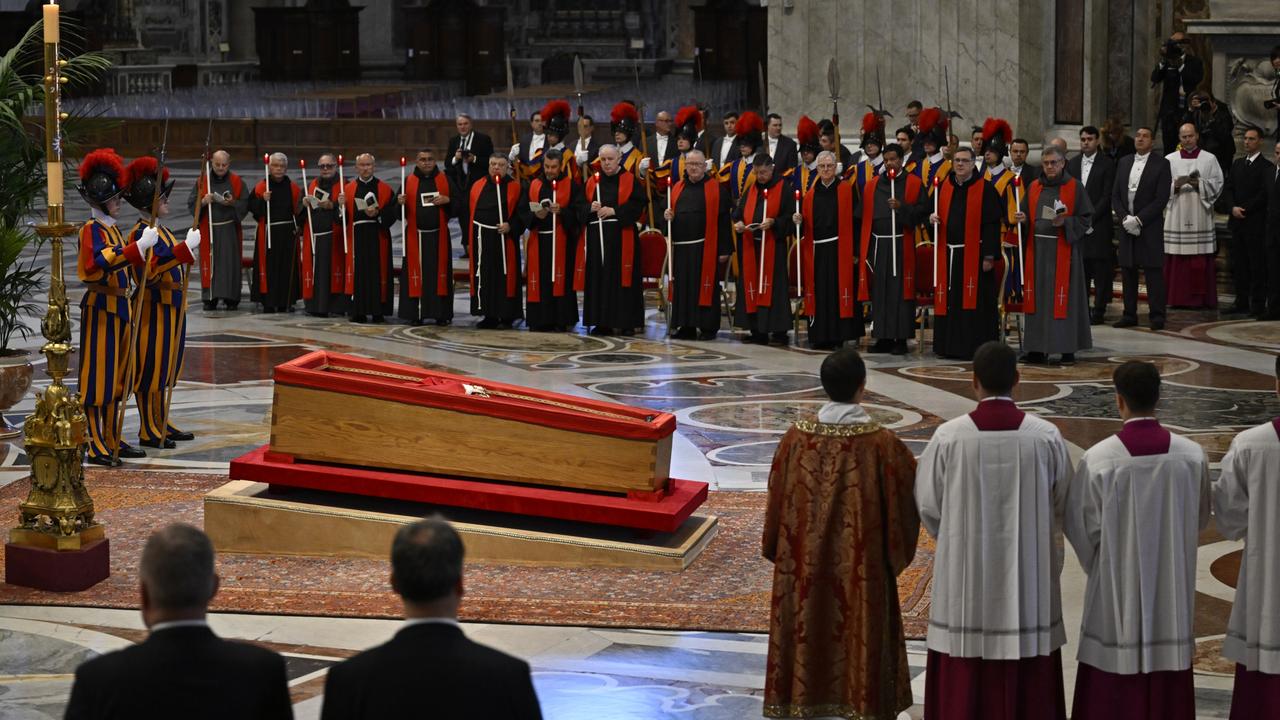Kabul blames Pakistan spy agency for year’s worst bombing
Afghan intelligence has blamed in part their Pakistani rivals for the deadliest attack on Kabul this year.

Afghanistan’s intelligence agency has blamed the Haqqani network and Pakistan’s spy agency for harbouring the militants responsible for the deadliest attack on the capital of Kabul this year.
The bomb was hidden in a sewage tanker and was detonated during morning rush hour on Wednesday in the upscale suburb of Wazir Akbar Khan — one of the city’s most heavily secured districts and home to embassies and the presidential palace.
At least 90 people were killed and more than 460 wounded in the 8.30am blast that left a 5m-deep crater on Zanbaq Square. Most of the casualties were civilians on their way to work.
Officials said yesterday that the truck was laden with 1500kg of explosives when it was stopped by security as it tried to enter the heavily-fortressed green zone.
President Ashraf Ghani condemned the attack as a crime against humanity, which he said was carried out with the help of an outside intelligence force — code for Pakistan’s Inter-Services Intelligence. “The terrorists, even in the holy month of Ramadan, the month of goodness, blessings and prayer, are not stopping the killing of innocent people,” he said in a televised address.
Dr Ghani also spoke with US President Donald Trump, ahead of an international security conference in Kabul next week to discuss ways to end the conflict.
Three years after international forces, including Australian troops, pulled out of Afghanistan, the country is in deep crisis, with the Taliban in control of as much as 40 per cent of the country. The introduction into the battlefield of an Islamic State affiliate has compounded the country’s volatility.
The escalating attacks on Kabul are a measure of just how much more powerful the insurgency has grown in the years since the 2014 NATO withdrawal.
Mr Trump will soon decide whether to send up to 5000 extra troops, in addition to the 8500 on the ground, to try to stem Afghan government losses and has asked Australia to also do more. Canberra agreed this week to send an extra 30 troops, bringing the Australian contingent to 300.
Foreign Minister Julie Bishop said the Australian embassy in Kabul was closely monitoring the situation to determine if any Australians had been affected.
Afghan MP and analyst Nasrullah Sadeqizada said US and NATO troops in Afghanistan had done little to improve security and that, “if the situation continues to deteriorate, Afghans will lose all trust in the foreigners who are in Afghanistan as friends”.
No group has yet claimed credit for the attack. While the Taliban has denied responsibility, it has a patchy record of owning up to strikes with high civilian casualties.
Afghanistan’s National Directorate of Security said evidence showed the Taliban-aligned Haqqani network was behind the strike with the assistance of Pakistan’s ISI.
Afghan authorities frequently blame their neighbour — with some justification — for sponsoring the deadly insurgency within its borders as a way of maintaining “strategic depth” in Afghanistan against Indian influence.
“These terrorists once again proved they don’t represent any religion and they only carry out such coward attacks to please their Pakistani masters, which is against all Islamic and human rights principals,” the NDS said.
Among the dead was veteran BBC driver Mohammed Nazir, a father of four whose colleagues eulogised him on social media and the BBC website yesterday, and a ToloNews employee, Aziz Navin.
Two months ago, 49 people were killed in an attack by suspected Haqqani gunmen on Kabul’s Sardar Daud Khan Military Hospital. In April, 140 people were killed in an assault on the Mazar-e-Sharif army base, in northern Balkh province.
Earlier this year, the government promised to install explosive-detection devices at entry points into Kabul. That has not happened. Furious Kabul residents say every fresh terror strike brings a temporary security crackdown, only for those measures to lapse within weeks.




To join the conversation, please log in. Don't have an account? Register
Join the conversation, you are commenting as Logout